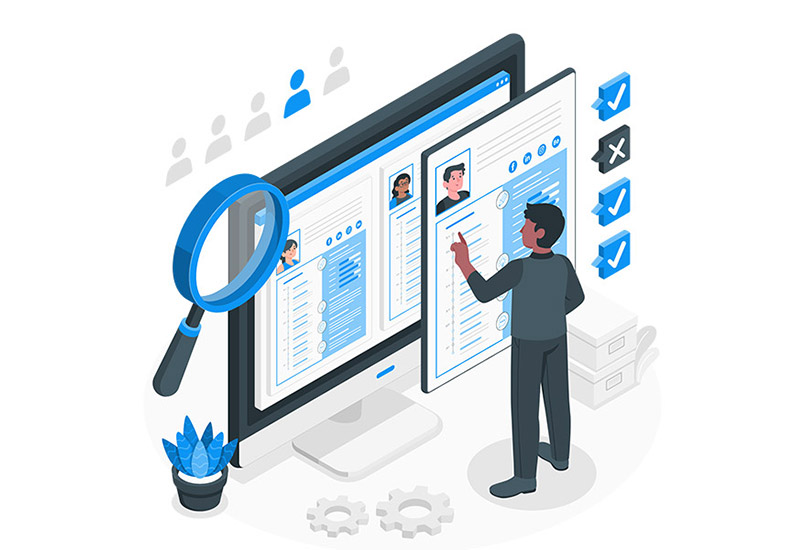Thinking through a micro-entrepreneurship lens
A consultant needs to do everything an entrepreneur or larger business does. You can either do these yourself or find other service providers to support you. Here are 6 things to think about.
And we are here! The final entry in our series is on what to keep in mind while shifting to independent insight-related consulting. So far, we have spoken of four considerations:
- Managing your income and savings prudently (Read about it here)
- Developing expertise (Read about it here)
- Executing your insight projects efficiently (Read about it here)
- Securing repeat customers (Read about it here)
Now we explore the last one: Thinking of your consulting through a micro-entrepreneurship lens.
A consultant needs to do everything an entrepreneur or larger business does! Setting up the right business entity, sales, marketing, accounting and compliance, human resource management, and more.
If you’ve worked in a large company, it’s likely you’ve become a domain expert. That means you had colleagues raise invoices, pay service taxes, and implement video conferencing software. But as a consultant, you now have two choices. Either do these yourself. Or find other service providers to help you.
Here are 6 key factors to bear in mind:
1. Type of business entity
It’s a good idea to consult a qualified finance professional in your country before making this choice. But it doesn’t hurt to do a bit of research yourself! Without much ado, here are your major options.
- Sole Proprietorship (SP)
- One Person Company (OPC)
- Partnership (PA)
- Limited Liability Partnership (LLP)
- Private Limited Company (PvLC)
- Public Limited Company (PuLC)
If you’re an individual running a business, you can decide between SP and OPC. Typically, SP is the preferred option for most independent consultants on the InsightGig platform. However, you may want to consider OPC to limit your liability, keep the option of transfer of shares, and separate your business from yourself. You can read more about the differences here, here, or here.
If you’re running the business with other founders or investors, the choice is probably between PA, LLP, and PvLC. Typically, compliance requirements are smaller in a PA than in an LLP or a PvLC. Your final choice depends on several factors like business size, number of partners, nationality of partners, capital deployed, the extent of liability you would like to take on, cost of compliance relative to revenues, future plans of bringing in investors, and more. You can read more about the differences here, here, and here.
2. Manage the ‘taxing times’ better
If you’re above the minimum revenue threshold for services, you would need to comply with business taxation or GST, as we call it in India. Even if you are below the limit, some of your customers might ask you for a business service registration, in order to get input credit themselves. Further, if you join an online marketplace to provide your services, it becomes mandatory to get a service tax registration, irrespective of revenues. There are a few cases when you may choose not to register yourself under GST. For instance, if your revenue is below the threshold limit or if all your clients are outside India and you are exporting all your services. In the end, take advice from a qualified finance professional to be compliant with business and other service tax regulations in your country.
3. Get those books in order
If you have revenues, you need to invoice and account professionally like any other business. For micro-entrepreneurs, software and automation should be the way to go. Because it lets you focus on your core expertise. Every additional minute spent on your core expertise means more revenue. To explore accounting software, check out brands such as Zoho, Tally, myBillBook, Khatabook, and more. They can help you professionally manage invoicing and accounting on your own or with the help of a qualified finance/accounting professional. For instance, most accounting software platforms now provide a login for your finance professional along with you, removing the need for face-to-face coordination. They also automate elements like payments and taxes, and save you a lot of time and effort.
4. Upgrade the tools of your trade
Good technology helps you plan and deliver your services efficiently. It gives you the freedom to be innovative. Software companies like Microsoft, Google, and Zoho have great bundled options that give you access to a variety of software tools at a reduced price. The following tools should give you a good start: an emailing solution, tools for content creation, video conferencing, and other communication tools, online storage with the ability to work on documents simultaneously with others, and a DIY website creator. We recommend taking the bundled option that suits your needs. Apart from general tools, it is prudent to invest in strategic software that enhances your work, such as an online survey tool or programming tools for data analysis and modeling.
It is also highly recommended to invest in hardware with specifications that match your requirement. Apart from the laptop, make sure to invest in good headphones for video calls! Articles on how to ace that video conference call for critical presentations can be found here and here.
5. Every service provider needs another trusted provider!
It is recommended that you take expert assistance for accounting, legal, and compliance. Freeing up your precious time for core revenue-generating activity is critical. If you find yourself spending too much time on non-core activities, it’s time for a relook. For example, compliance requirements typically tend to increase manifold as an independent consultant. In the personal experience of InsightGig’s cofounders, having a good finance or accounting professional to advise you on these matters is very helpful. You could also use one of the new-age digital platforms that offer such services. Indian companies can explore options like IndiaFilings, Vakilsearch, Clear, Legal Raasta, Startupwala, and Companies in. Do experiment till you find the solution that is right for you, in your country.
With all business services taken care of, you might think you can focus on the execution of insights projects! But there’s one last thing that ensures a pipeline of work.
6. Sales & Marketing
Once you become a micro-entrepreneur, you are your own salesperson! The business doesn’t come pouring in; you need a plan. That plan involves asking yourself some questions:
- Who is my audience?
- What is the best channel to reach them?
- What kind of content can I post weekly to influence them?
- Am I posting examples of my work online to let people know what I do?
- Am I engaging with my leads over email to convert them?
- Am I staying in touch with existing clients over a newsletter?
As you start answering these questions, the end outcome would be a steady stream of content marketing that enables your prospects to be aware of what you do and why they should work with you. The best place to begin your marketing journey is LinkedIn. Depending on your industry and nature of work, you may also consider other modes like participation in events, associations, and face-to-face interactions. InsightGig has a vision to help insights professionals showcase their work to potential customers on its platform!
Conclusion
That brings us to the end of the series on what to bear in mind when making the shift to independent insight consulting. We hope you got some insight into how to plan your consulting journey. Making the shift can be daunting at first when you consider all these elements. But the trick is to choose an area where you also have the valuable ‘P’ – passion! Loving what you do inspires you to care about it. Caring about it takes care of all the other elements.
Remember it’s time to approach things with a newer, more agile mindset. Learn to have a vision but also be flexible, to inspire people but also let their potential unfold, to cover all bases but also be ready for uncertainty, and to constantly push the envelope in your field so clients say, “No one does what this person does.” And when things get overwhelming, remember you never have to do it all yourself.
We at InsightGig, are here to help you find work, deliver it smartly, and retain clients in the brave new world of insight consulting!






